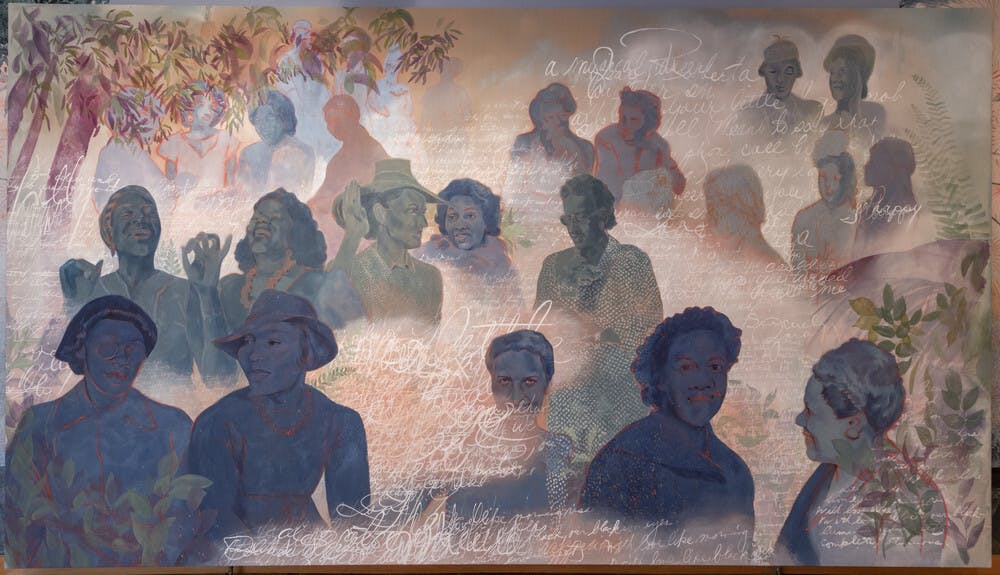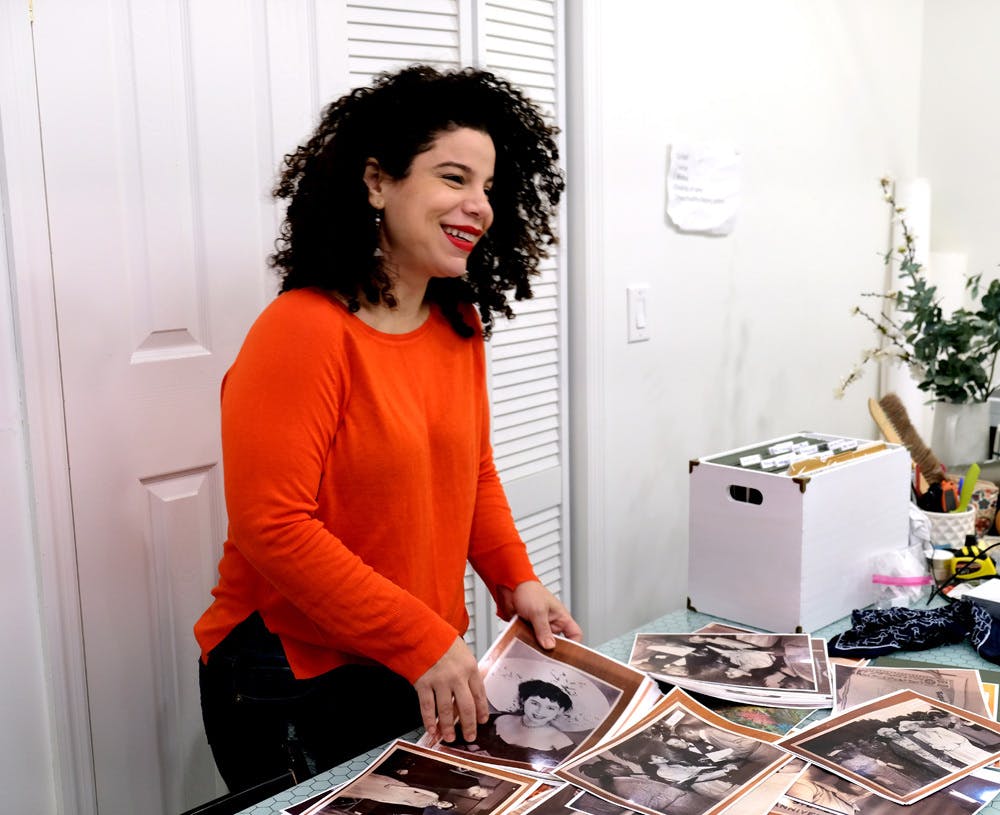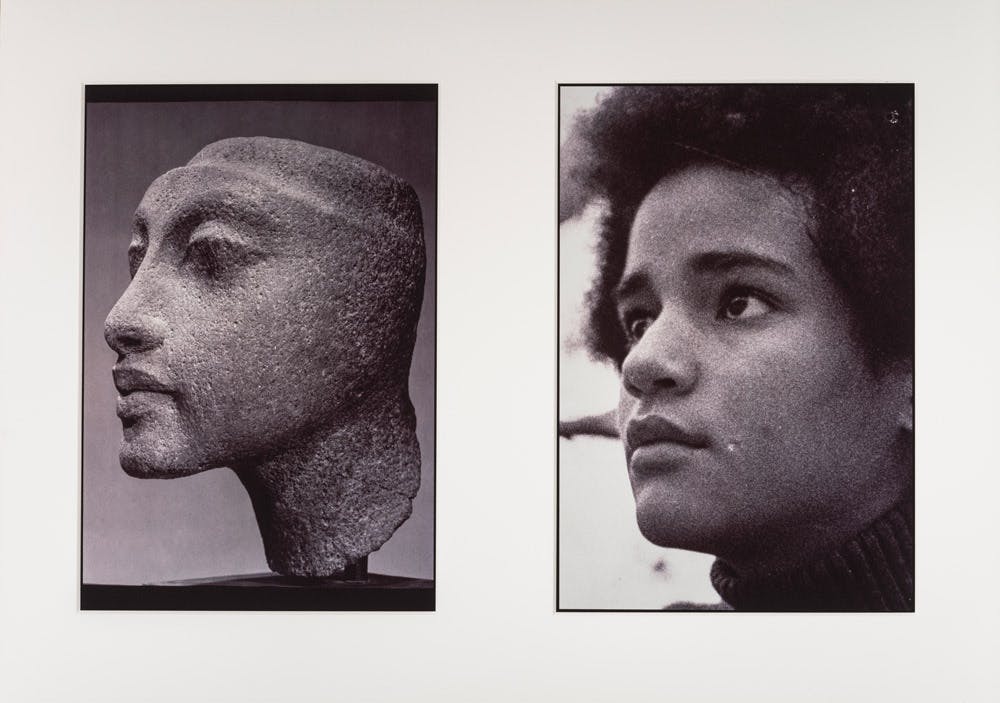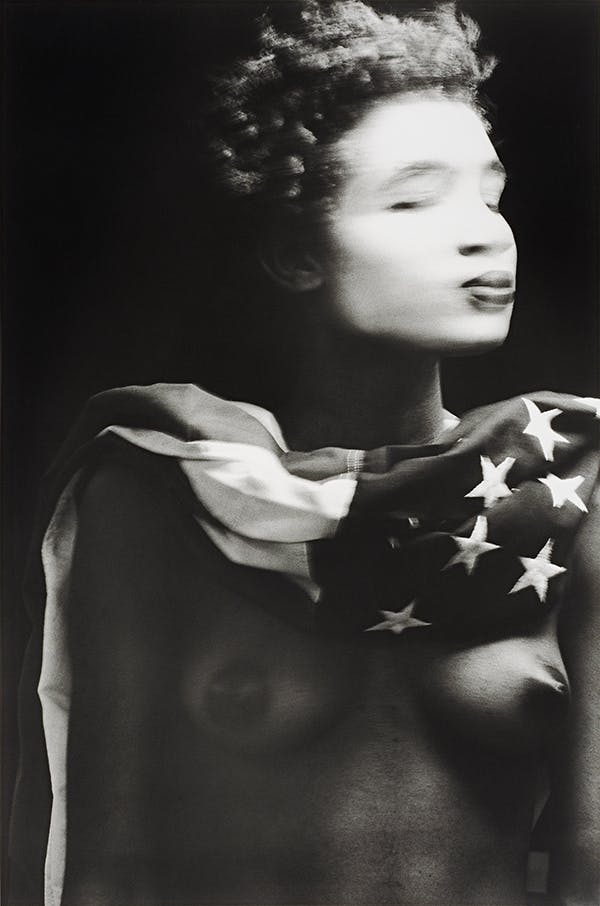Firelei Báez
(b. 1981)Firelei Báez draws upon African diasporic histories, reimagining them to explore new possibilities for the future.
Biography
Firelei Báez, the daughter of a Dominican mother and Haitian father, spent her childhood between the two countries, which have long histories of social, economic, and ethnic tensions. This experience informed her understanding of politics, place, and heritage. At age eight, she relocated to Miami with her mother and sisters. Feeling out of place in the United States, Báez found solace in the writings of Arturo Alfonso Schomburg, a Puerto Rican immigrant and Harlem Renaissance historian, writer, and activist. His work confirmed that her ancestral history, which seemed absent at times in her new environment, is foundational to Western history. Throughout her childhood, art offered her an ability to creatively transform each new space that she occupied and make it her own—inspiring her to move to New York to formally study art at the Cooper Union and later at Hunter College. In 2008, she completed a residency at the Skowhegan School of Painting and Sculpture, where she began incorporating figures like ciguapas, female tricksters of Dominican folklore, into her abstract work.
Since then, Báez has drawn upon African diasporic histories, reimagining them to explore new possibilities for the future. She often paints directly onto maps, manuals, and travelogues, exploring subject matter such as tignons, colonially mandated head coverings worn by women of color in eighteenth-century New Orleans; Sans-Souci, a once-majestic Haitian palace built by a former slave turned revolutionary general and, later, king; and mythical stories from Dominican and Haitian folklore. Her subjects, rendered in vibrant colors, sit at the intersection of human and landscape and uphold their own agency amidst a state of flux.
Báez earned a BFA from Cooper Union and an MFA from Hunter College. She has received awards including the Philip Guston Rome Prize (2021); Soros Arts Fellowship (2019); and Future Generation Art Prize (2017). The Studio Museum has presented her work in exhibitions such as Fore (2012); Regarding the Figure (2017); and Firelei Baez: Joy Out of Fire (2018).
Exhibitions and Events
Firelei Báez
(b. 1981)Firelei Báez draws upon African diasporic histories, reimagining them to explore new possibilities for the future.
Biography
Firelei Báez, the daughter of a Dominican mother and Haitian father, spent her childhood between the two countries, which have long histories of social, economic, and ethnic tensions. This experience informed her understanding of politics, place, and heritage. At age eight, she relocated to Miami with her mother and sisters. Feeling out of place in the United States, Báez found solace in the writings of Arturo Alfonso Schomburg, a Puerto Rican immigrant and Harlem Renaissance historian, writer, and activist. His work confirmed that her ancestral history, which seemed absent at times in her new environment, is foundational to Western history. Throughout her childhood, art offered her an ability to creatively transform each new space that she occupied and make it her own—inspiring her to move to New York to formally study art at the Cooper Union and later at Hunter College. In 2008, she completed a residency at the Skowhegan School of Painting and Sculpture, where she began incorporating figures like ciguapas, female tricksters of Dominican folklore, into her abstract work.
Since then, Báez has drawn upon African diasporic histories, reimagining them to explore new possibilities for the future. She often paints directly onto maps, manuals, and travelogues, exploring subject matter such as tignons, colonially mandated head coverings worn by women of color in eighteenth-century New Orleans; Sans-Souci, a once-majestic Haitian palace built by a former slave turned revolutionary general and, later, king; and mythical stories from Dominican and Haitian folklore. Her subjects, rendered in vibrant colors, sit at the intersection of human and landscape and uphold their own agency amidst a state of flux.
Báez earned a BFA from Cooper Union and an MFA from Hunter College. She has received awards including the Philip Guston Rome Prize (2021); Soros Arts Fellowship (2019); and Future Generation Art Prize (2017). The Studio Museum has presented her work in exhibitions such as Fore (2012); Regarding the Figure (2017); and Firelei Baez: Joy Out of Fire (2018).




